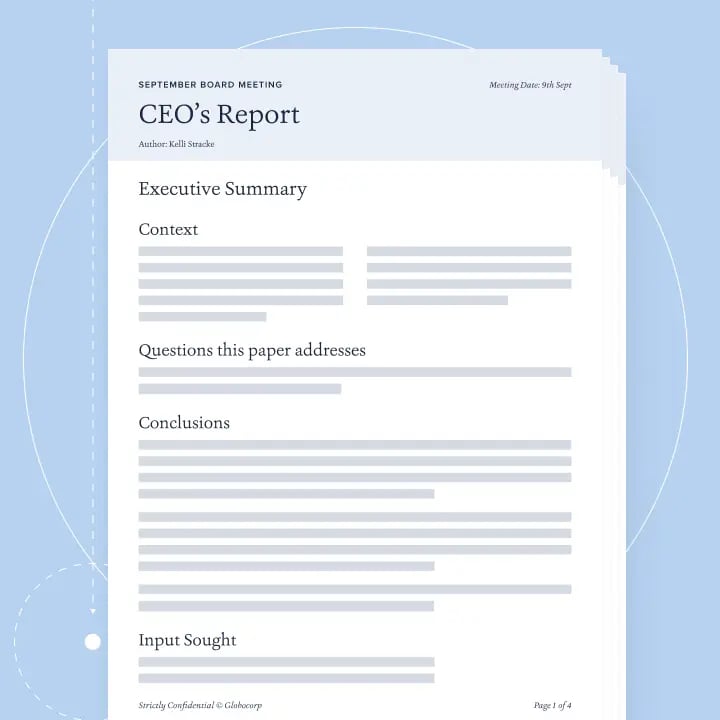Governance Game Changers is a blog and event series that celebrates governance professionals who’ve broken the mould and changed perceptions. One such game changer is Shaun Coles, who became Banco Santander’s global director of governance after rising through the ranks of the Santander UK (formerly Abbey National) governance team. Here, Shaun shares his thoughts on what it takes for governance to become a strategic, global asset, and the role governance professionals must play to make it happen.
1. Diversify your team’s skill set
I was company secretary for Santander UK for a few years before I moved role to Madrid to take on a Global Governance role at group level. As part of my new role, I had to create a new team. And because I couldn’t just bring everyone from the UK with me, it was an opportunity to rethink what, exactly, we were looking to achieve and what kind of skills we needed to do that.
“Those who go furthest in the role aren’t those necessarily with the greatest academic smarts or legal backgrounds, but those with the greatest ability to engage and connect with people.”
Many people expect company secretaries and governance professionals to be experts on every piece of legislation that might affect their industry — and there are quite a few in banking. Yet, in my experience, those who go furthest in the role aren’t those necessarily with the greatest academic smarts or legal backgrounds, but those with the greatest ability to engage and connect with people. Because, fundamentally, this job is all about understanding and influencing for the better the most senior — and often the most challenging — people within your organisation.
“In a global group, operating in regions that all have their own ways, it’s so easy to misunderstand each other when you’re trying to implement robust governance throughout.”
And so, rather than focusing on technical abilities and certifications, we purposefully focused on behaviours, appetite for learning, and diverse experience — with people coming via internal audit, risk, and the business route. Six years later, this is paying massive dividends. In a global group, operating in regions that all have their own ways, it’s so easy to misunderstand each other when you’re trying to implement robust governance throughout. But with those people skills, and that diversity of backgrounds, we’re better placed to ensure that everyone is on board and that we can have the maximum impact.
2. Challenge to enable, not to block
A good company secretary should be tuned in to where the organisation is going strategically, to what its business drivers are, and, from that, should be able to innovate and come up with new and agile governance practices that can help make said strategy a success. That’s the exciting stuff, when you ask not just “How can we ensure robust governance and meet regulatory requirements,” but also “and how do we do all that whilst moving at pace?”
Here again, the stereotypical image of the bureaucrat is playing against you. So, from day one, you have to work hard to demonstrate what your function is about, and make it clear that you’re not here to stop people from doing things but to enable them to do it — in the fit and proper way. Your advice cannot just be, “I’m afraid I can’t let you do that,” it has to be, “You can’t do it like that, but here’s something else that would work.”
“You have to demonstrate what your function is about, and make it clear that you’re not here to stop people from doing things but to enable them to do it — in the fit and proper way.”
Going from being perceived as a blocker who smothers initiatives to an enabler who helps them thrive isn’t always easy, so one thing that I recommend is having members of your team fully engaged in key discussions and physically present in board or executive-level committees and meetings. That lets them be in the mix, hear the conversations first-hand, and, just as importantly, be able to give an opinion and demonstrate that they have skin in the game.
3. Distil complexity into actionable insight
The UK’s corporate governance regime is widely seen as the gold standard — and often for good reason. But it’s not unusual for new requirements to have unintended consequences. More often than not, that happens to be in the form of increased complexity — think of the massive, intricate endeavour that was ring-fencing banks, to name just one example.
“Build for shared principles, not for disparate regulations.”
These governance-related challenges will differ from country to country, and they will to an extent determine whether your strategy is viable there or not. And so, your responsibility is two-fold:
- First, you must help board members cut through that complexity and give them a sense of what’s what — by connecting with each country’s governance team, understanding their unique challenges, and building that overall view.
- And second, you have to build for shared principles, not for disparate regulations. For example, at Santander, we have developed a group subsidiary governance model that makes it very clear what’s expected of each of the geographies, and then it’s down to them to execute it within their own legal and regulatory frameworks.
By doing so, you’ll take governance one step beyond its complex, regulatory aspect, and you’ll turn it instead into a valuable tool that helps your organisation achieve its goals; effectively ensuring that business and governance act, as one, as a key enabler to delivering in line with agreed strategy.
This interview was conducted by Megan Pantelides, Nathalie Hulbert, and Maximilien van Gaver.

A thinking and writing platform that helps you to write brilliantly clever and beautiful reports that surface breakthrough insights and spur your business to action.
Find out more


